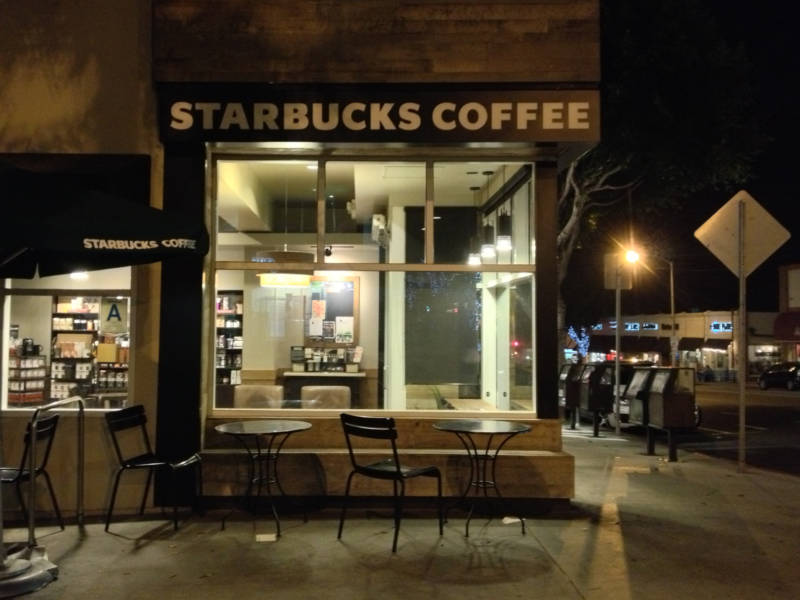"The smaller the pieces of ice, the more 'accurate' the conversion of ounces — from frozen liquid — will be," his complaint said. "However, large pieces of ice — like those used by Starbucks in its cold drinks -- take up more space and thus when melted, will yield fewer measured 'fluid' ounces of coffee or tea."
All those icy shenanigans allegedly amounted to fraud, false advertising, negligent misrepresentation and a host of other infractions that Forouzesh wanted to see punished.
U.S. District Court Judge Percy Anderson agreed with Starbucks' argument that "reasonable consumers" know what the deal is with the ice in their drinks and aren't confused about how many ounces of delicious beverage they're receiving.
"As young children learn, they can increase the amount of beverage they receive if they order 'no ice,'" Anderson wrote in an order released last Friday. "If children have figured out that including ice in a cold beverage decreases the amount of liquid they will receive, the court has no difficulty concluding that a reasonable consumer would not be deceived into thinking that when they order an iced tea, that the drink they receive will include both ice and tea and that for a given size cup, some portion of the drink will be ice rather than whatever liquid beverage the consumer ordered."
Anderson dismissed Forouzesh's complaint "with prejudice" -- legalese for "don't bring this garbage into my courtroom again."
But Starbucks is still facing three lawsuits that accuse it of underfilling customers' drinks. A suit filed in Chicago focuses, like Forouzesh, on ice in cold drinks. Complaints filed in San Francisco and New York City target alleged skimping on hot beverages.
Here, we enter the realm of legal arcana.
The java giant recently tried to have the cases consolidated to the federal district court in Seattle, its corporate hometown. The request went before a review board, the Judicial Panel on Multidistrict Litigation, made up of federal judges from around the country.
The panel earlier this month rejected Starbucks' motion to move the suits to Washington. For one thing, the panel's ruling said, the litigation isn't all that complex or far-flung. For another, the subjects of the suits -- some challenging the integrity of Starbucks' hot drinks, some alleging cold-drink fraud -- are different enough to warrant trying them separately.
The various lawsuits "involve different factual theories of liability," the panel wrote, adding:
"Two actions allege that latte and mocha beverages are underfilled based on recipes and equipment unique to beverages made with steamed milk, and two actions allege that cold drinks are underfilled based on practices unique to beverages made with ice. These factual dissimilarities likely will result in discovery, pretrial motions, and class certification issues that are not shared across the beverage categories. "
The two hot drink suits and the remaining cold drink suit, with their diverse theories of liability and factual dissimilarities, are all scheduled for further proceedings this fall.

